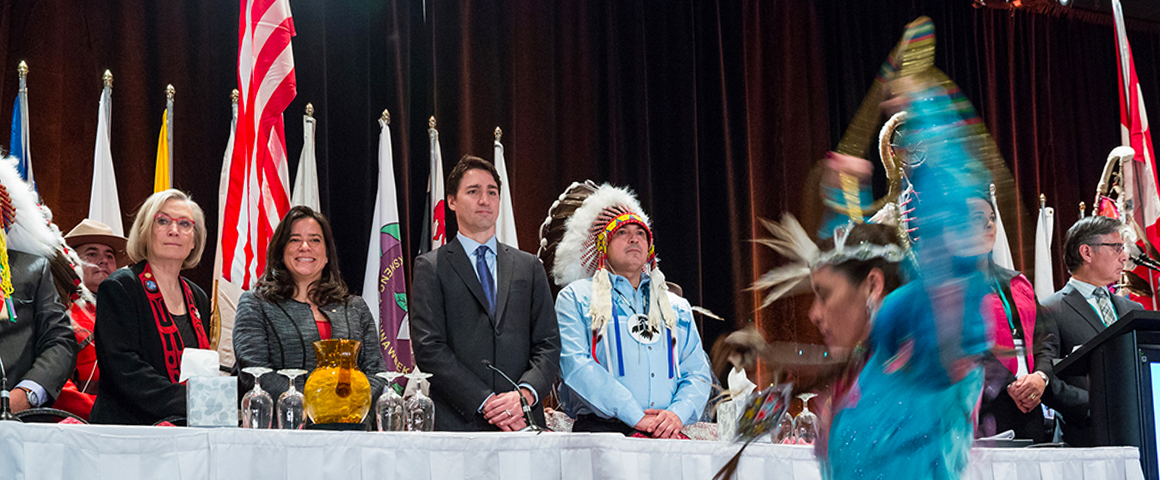As fallout from the SNC-Lavalin scandal spreads across the landscape, the record of Justin Trudeau’s election pledges to Indigenous peoples could affect next October’s federal campaign. Back in 2015, voter turnout on reserves across Canada jumped to 62%, up from 47% in 2011. One reason was anger among Indigenous peoples against the Harper Tory government’s Bill C-45, which removed federal protections for forests and waterways, sparking the emergence of the Idle No More movement. Trudeau’s Liberals took advantage, promising to implement a “new nation-to-nation relationship”. It has been estimated that higher Indigenous voting may have helped swing up to 22 ridings to the Liberals.
Almost four years later, warm fuzzy feelings have been replaced by bitterness. For Indigenous peoples, Jody Wilson-Raybould’s resignation from Cabinet is almost universally understood within the overall framework of centuries of racist and colonialist repression. Even when a so-called feminist and enlightened Liberal PM promotes an Indigenous leader of Wilson-Raybould’s stature to Cabinet, the underlying message is that her standing depends on following the orders of the PMO.
The Liberals are scrambling to bring forward child-welfare legislation ordered by the courts, and a long-awaited Indigenous Languages Act, and offering support to NDP MP Romeo Saganash’s private member’s bill, which seeks to line up Canada’s laws with the United Nations Declaration on the Rights of Indigenous Peoples. But these bills may not get through parliament by late June, and the Inquiry into Missing and Murdered Indigenous Women and Girls will not wrap up before the election. Some slow progress has been made on other fronts, such as reducing the number of Indigenous communities which lack clean drinking water.
But the days when Justin Trudeau could count on positive photo ops wherever he campaigned, on and off reserve, are past history, and his government may pay a heavy price.




